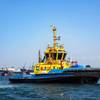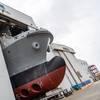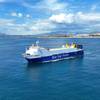"In spite of the significant advances that have been made in recent years, shipping can and should become safer than it is now. To help achieve this, the scope of the activities covered by classification societies may well become wider and more varied in the future."
This was the message from Willem de Jong, managing director of the Marine Division of Lloyd's Register (LR), in his keynote speech, which opened the proceedings at the Shiprepair & Conversion exhibition and conference held in London.
"Although checks on the condition of ships, their machinery and equipment will continue, classification societies are expected to focus increasingly on management systems and risk assessment and the way in which these activities determine the effectiveness and efficiency of safety management and the prevention of pollution."
Mr. de Jong posed two questions to his audience. Is the present safety level good enough? And how can we make further improvements?
"The answer to the first question is, in my opinion, no," he said. "Society does not accept accidents and casualties. The marine industry must continue to strive for improvement, and public perception will inevitably provide an impetus for our industry to take forward this vision.
"The second question is not so easy to answer. Making further improvements presupposes that we will at least be able to maintain present safety levels - something which already requires substantial effort and continued vigilance, certainly when taking into account the still increasing average age of the world fleet."
In his speech, titled "Classification Societies in the Next Millennium," Mr. de Jong outlined the role of classification societies, and how their functions and responsibilities fit into the marine industry. He also gave a historic perspective on the events and circumstances that provoked the major societies to take matters into their own hands in the late 1980s, improving self-regulation within their own area of the industry, both individually and collectively.
Mr. de Jong outlined the methods he believes could be the way forward for class in the future. These include emphasizing the human element in the safety and reliability equation: paying more attention to ships' operation and the management of marine systems, and ensuring the availability of good operational, maintenance and repair information.
"We must also make available to the marine industry reliable data on failures, problems and possible solutions," he said. "Also, classification societies could provide training courses, sharing our expert knowledge and experience with other marine industry personnel."
Information technology (IT) will also play a major part in the future for class.
"Speed of communication and accurate information are crucial to the marine industry. Increased use of Internet technology has obvious benefits in speeding up the exchange of data between class and client." He predicts that, soon, much of the communication between class and client relating to plan approval, specifications and calculations will be 'on line'.
Mr. de Jong concluded by outlining a plan for class into the new millennium, including striving to achieve further improvements in structural safety; increasing data feedback from inspection and hull stress monitoring; reducing duplication of surveys; focusing efforts on the human/technical interface and providing industry with systematic and transparent information based on experience.
"Class will enter the next millennium with a fresh outlook, while continuing to provide shipowners with an experienced and dedicated worldwide network of surveyors, offering unbiased and impartial technical judgments."
Sponsored Content
Safer Starts Here: Build Ships, Protect Crews

Featured videos

Cat Pushes Forward on Hybrid Electric Solutions, Alternative Fuels
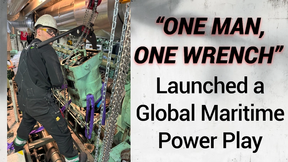
“One Man, One Wrench” Launched a Global Maritime Power Play
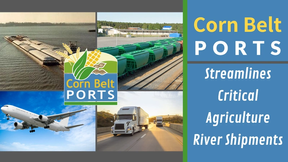
Corn Belt Ports Streamlines Critical Agriculture River Shipments
July 2025
 Read the Magazine
Read the Magazine

 Read the Magazine
Read the Magazine
This issue sponsored by:

Precision in Motion – Inside American Fan’s Mission to Support the U.S. Navy Fleet
Subscribe for
Maritime Reporter E-News
Maritime Reporter E-News is the maritime industry's largest circulation and most authoritative ENews Service, delivered to your Email five times per week




